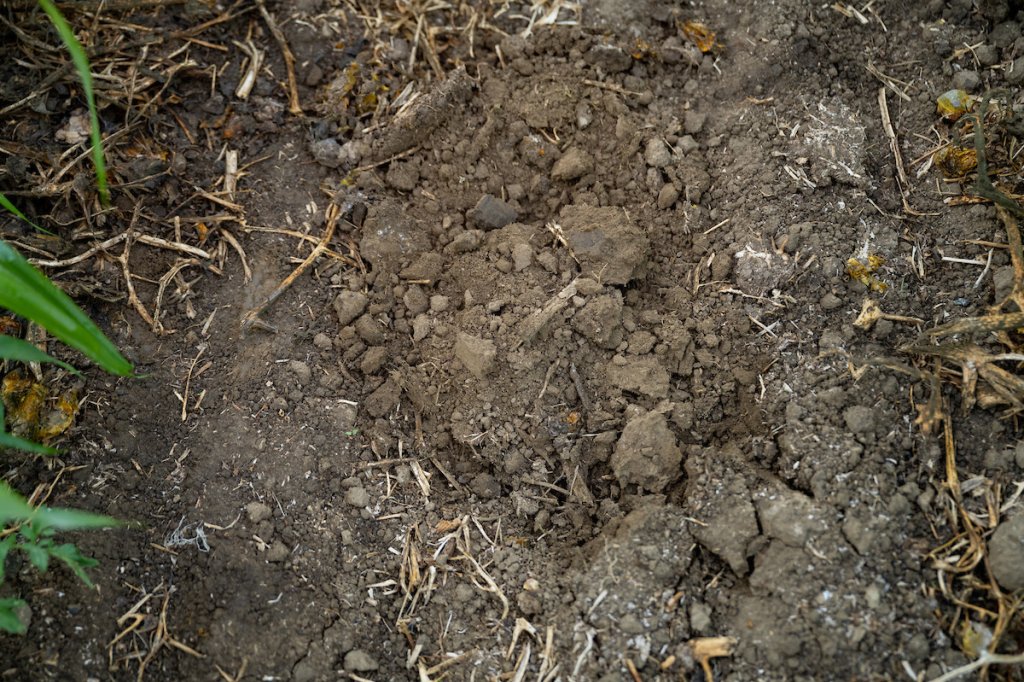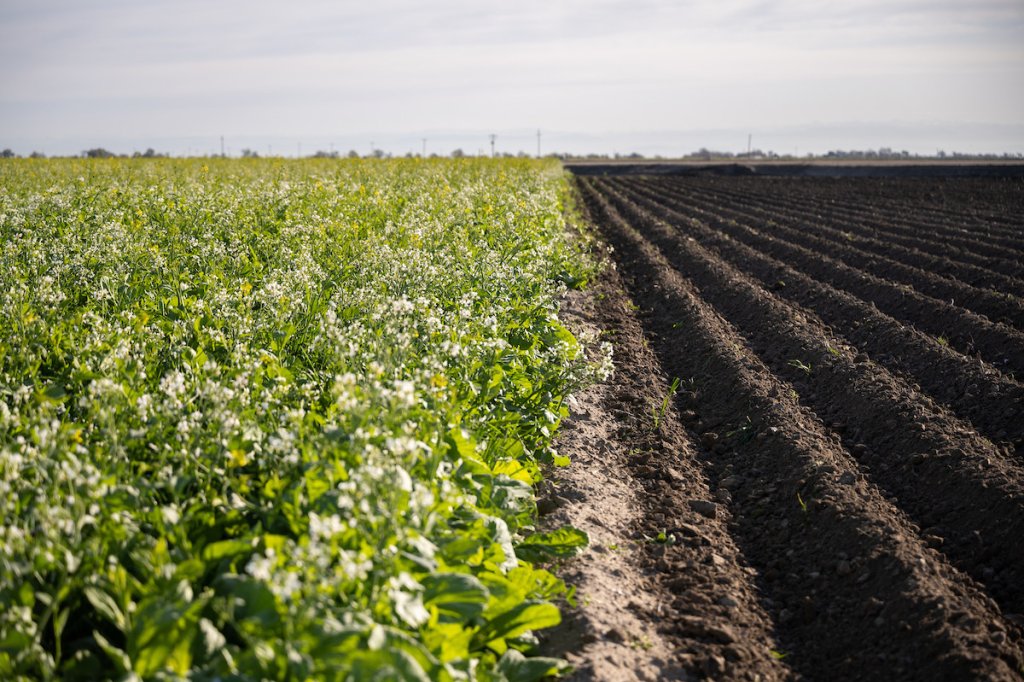AFT’s climate and soil health work is deeply intertwined with our other efforts to keep farmers on the land, promote sound farming practices, and protect farmland at regional and national scales. We focus on integrated approaches to mitigate climate change and enhance climate resilience. We are working to scale up the application of biochar on working lands, because it is a natural climate solution that has the yet-untapped potential to function as a powerful tool in the soil health and climate-smart toolbox.
Breaking Down Barriers to Biochar Adoption on Farms from Coast to Coast: A $4.5 million multi-partner project funded by the Natural Resources Conservation Service (NRCS) Conservation Innovation Grant Soil Health Demonstration Trial leverages American Farmland Trust’s (AFT) regional programs and connections with farmers and implementation partners. This initiative engages AFT’s interdisciplinary national team and partners to overcome barriers to biochar and soil carbon amendment applications, especially within broader soil health management system transitions across the country. These systems include reducing tillage, increasing cover cropping, and optimizing nutrient management, among other practices. The project aims to quantify the climate, soil health, and other environmental, social, and economic impacts of biochar applications on working farms in eight states. It addresses specific regional issues such as soil water dynamics, precision nitrogen management, soil microbial community structure, soil health management for high-disturbance crops, PFAS mitigation, and soil carbon stock. Additionally, the project contributes to decision support tool improvements and fosters relationships between biochar producers and agricultural producers.
Biochar Demonstration in an Almond Orchard: AFT and partners (including Pacific Farming Company, University of California – Merced (UCM), Sierra Resource Conservation District (RCD) and Madera/Chowchilla RCD will demonstrate biochar application on an almond orchard. Replicated treatments will include low and high application rates of biochar made from almond tree prunings and almond shells. UCM will measure soil GHG flux, soil moisture, plant available nitrogen, soil water infiltration, and other indicators. AFT will analyze economic benefits.
Convening and White Paper on Recommendations for Sustainable Biochar Research and Commercialization: Biochar has unrealized potential to increase soil carbon sequestration, reduce GHG gas emissions, and provide multiple synergistic benefits to farmers and the environment as part of soil health management systems, while also supporting the production of renewable, climate-neutral biofuels. To galvanize the necessary coordination to create a Pyrolysis-Biochar-Bioenergy Industry, the Foundation for Food & Agriculture Research (FFAR), the National Center for Appropriate Technology (NCAT), and American Farmland Trust (AFT) co-hosted a two-day virtual convening event on biochar research and commercialization. The convening recording is available at our Farmland Information Center, as well as the first of two companion whitepapers. The first represents a summary of the two-day event, as well as insights from subsequent stakeholder engagement. The second of two companion whitepapers provides initial recommendations for scaling up.
Initiative to build a National Biochar Decision Support Tool, GHG quantification, and educational resources. The USDA is providing funding to support the efforts of USDA-ARS scientists (PI: Dr. Kristin Trippe), in collaboration with AFT, US Biochar Initiative, Washington State University, and Oregon State University to expand the geographic and functional range of the Pacific Northwest Biochar Atlas decision support tool from a regional tool to a national one – the Beta version is available for testing in the tools section. The work is also improving on the ability to model the GHG benefits of biochar use, and hosting webinars as part of the Practical Implementation Webinar Series, live conversations, factsheets, gap analysis, and more, with resources to be hosted on AFT’s Farmland Information Center page, and training resources for USDA-NRCS staff.
Scaling up Biochar through partnerships and across AFT Programs: AFT is working to scale up the integration of biochar as a tool in the soil health management systems toolbox to boost production system resilience, carbon sequestration, GHG emission reductions, farm viability, and market opportunities on participating farms across AFT and partner programs. This includes biochar application work not just in annual production systems, but also in grazing lands on responsive soils in locations where plentiful biomass is available locally and where biochar has the potential to further increase soil carbon and soil function in tandem with currently better-known approaches, and can play 20 and CH4 reductions from manure management activities. It also includes providing advanced training to farmer and ag service provider advisors and mentors for peer networks that foster soil health management systems adoption









